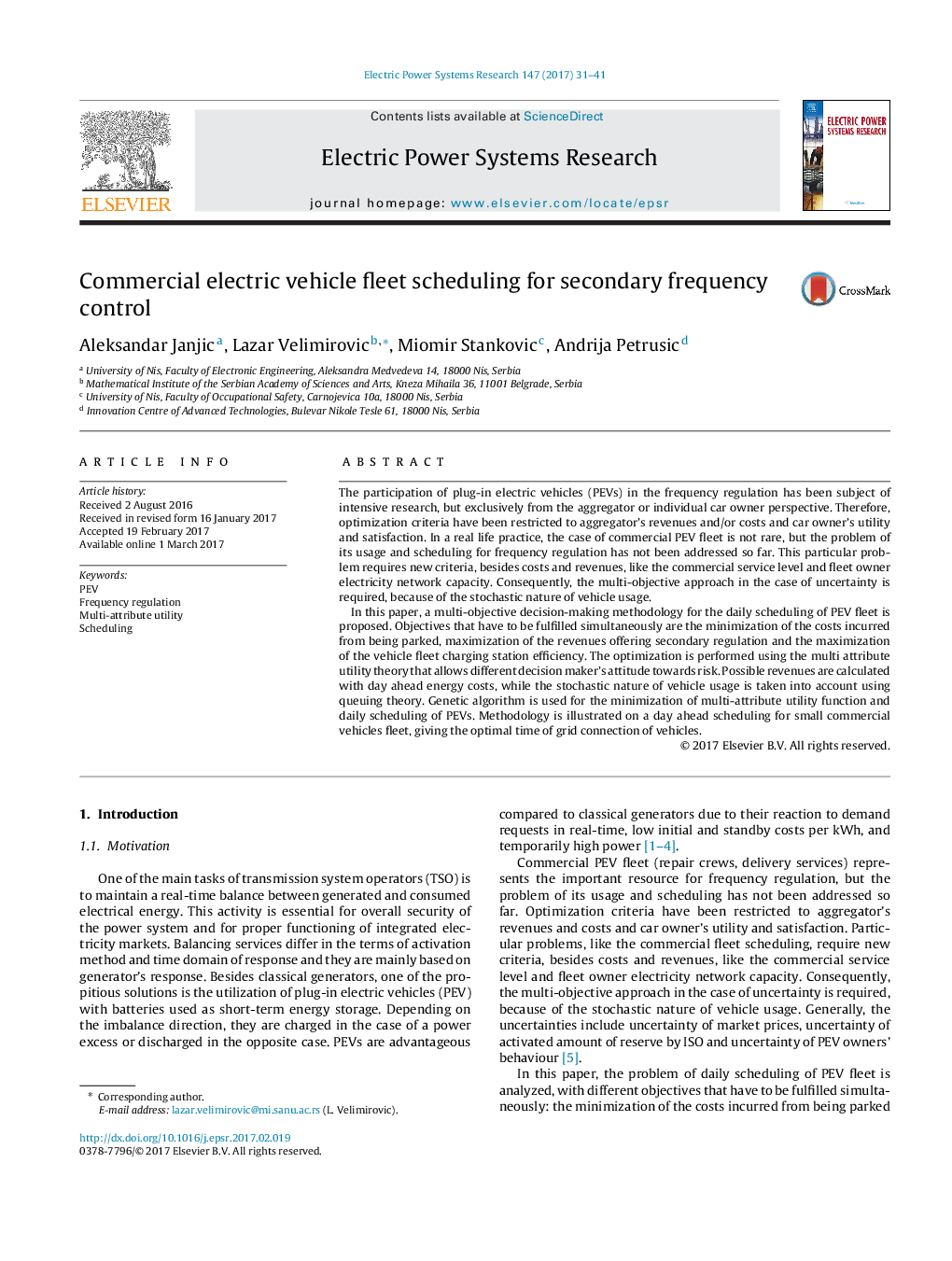| کد مقاله | کد نشریه | سال انتشار | مقاله انگلیسی | نسخه تمام متن |
|---|---|---|---|---|
| 5001169 | 1460866 | 2017 | 11 صفحه PDF | دانلود رایگان |
- We propose multiobjective decision making methodology for the daily scheduling of commercial EV fleet.
- Decision maker risk attitude is taken into account.
- Methodology gives fixed time of PEV connection offering negative secondary regulation for maximal revenues.
- The profitability of PEVs as resources for the secondary regulation is calculated.
The participation of plug-in electric vehicles (PEVs) in the frequency regulation has been subject of intensive research, but exclusively from the aggregator or individual car owner perspective. Therefore, optimization criteria have been restricted to aggregator's revenues and/or costs and car owner's utility and satisfaction. In a real life practice, the case of commercial PEV fleet is not rare, but the problem of its usage and scheduling for frequency regulation has not been addressed so far. This particular problem requires new criteria, besides costs and revenues, like the commercial service level and fleet owner electricity network capacity. Consequently, the multi-objective approach in the case of uncertainty is required, because of the stochastic nature of vehicle usage.In this paper, a multi-objective decision-making methodology for the daily scheduling of PEV fleet is proposed. Objectives that have to be fulfilled simultaneously are the minimization of the costs incurred from being parked, maximization of the revenues offering secondary regulation and the maximization of the vehicle fleet charging station efficiency. The optimization is performed using the multi attribute utility theory that allows different decision maker's attitude towards risk. Possible revenues are calculated with day ahead energy costs, while the stochastic nature of vehicle usage is taken into account using queuing theory. Genetic algorithm is used for the minimization of multi-attribute utility function and daily scheduling of PEVs. Methodology is illustrated on a day ahead scheduling for small commercial vehicles fleet, giving the optimal time of grid connection of vehicles.
Journal: Electric Power Systems Research - Volume 147, June 2017, Pages 31-41
